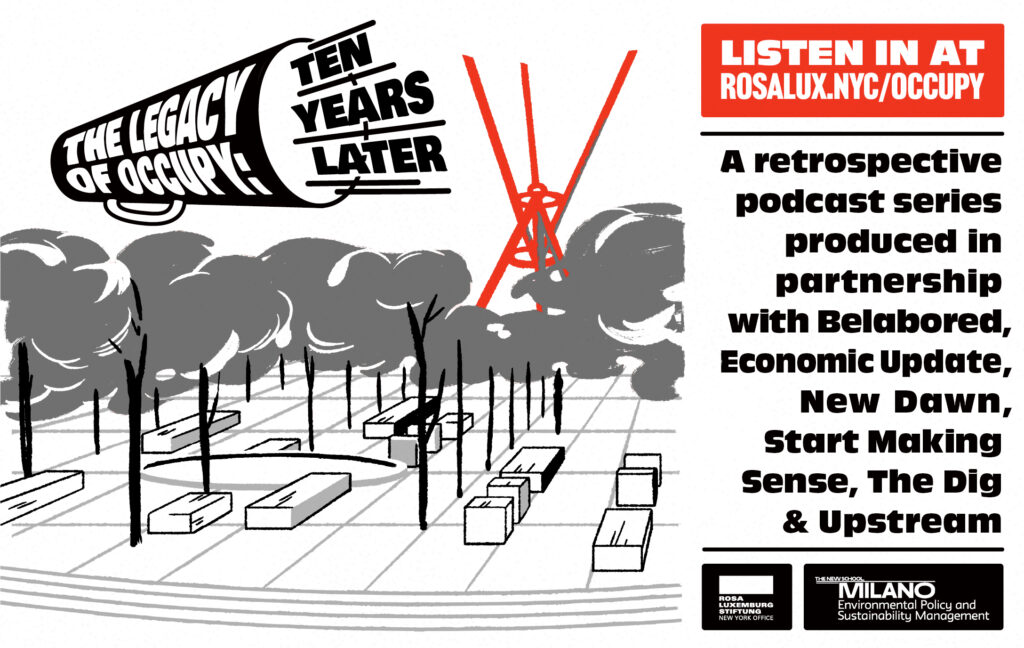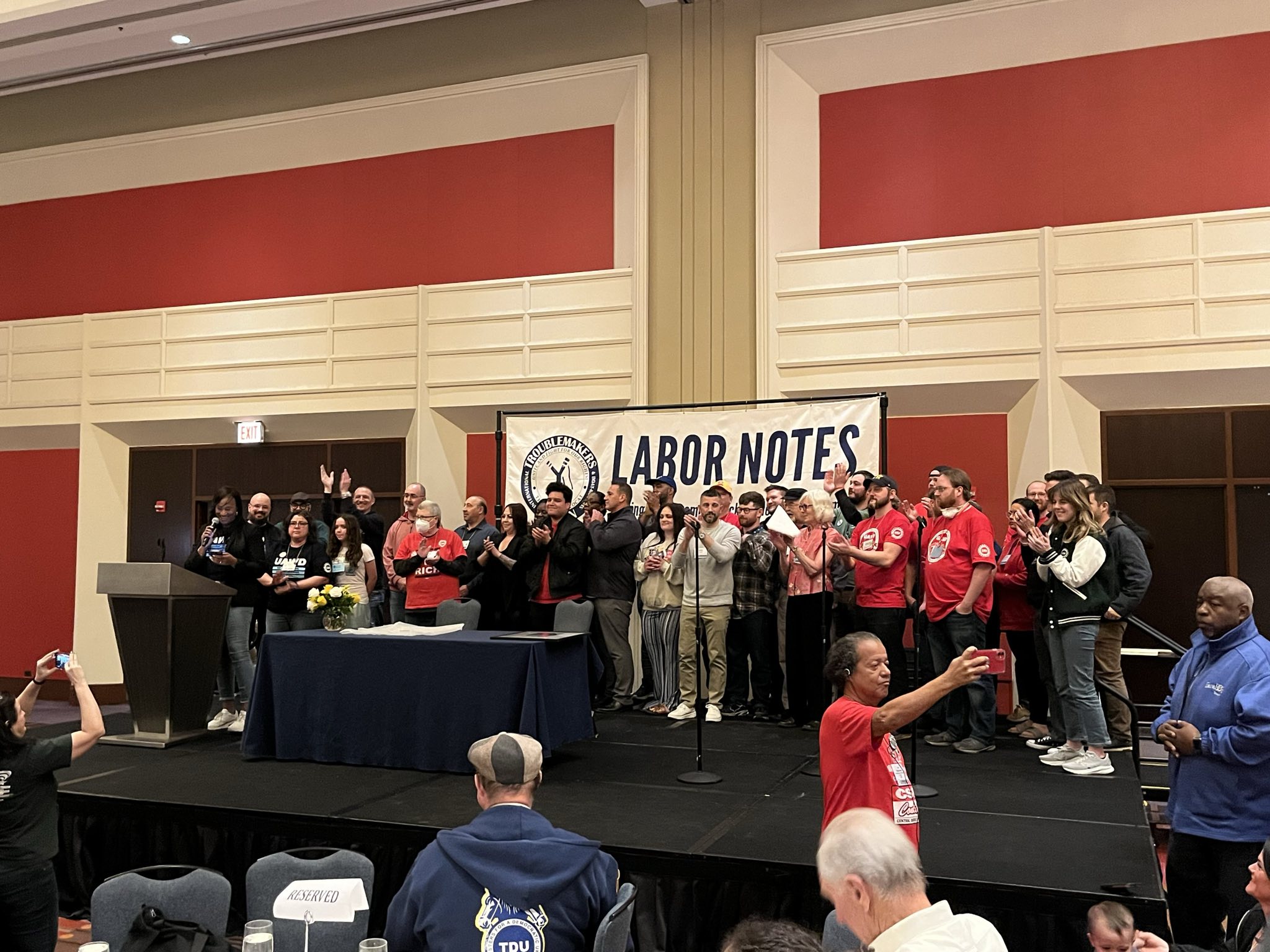In his book, The Utopia of Rules, the late David Graeber, one of the early organizers of Occupy Wall Street, wrote: “The ultimate, hidden truth of the world is that it is something that we make, and could just as easily make differently.” While many hope and dream of a world vastly different than the one we live in today, the current design and structures have shown great resilience to even the most compelling calls for systemic change. The struggle of remaking a new world has proven more difficult to manifest and organize than Graeber suggests. And yet, globally social movements endure.
For generations, social movements and the people they bring together have served as the tenacious and relentless prosecutors of progress, helping societies envision that another world is possible. Crucially, they continue to provide sources of great knowledge creation, ripe for learning and critique. In their work, We Make Our Own History, Laurence Cox and Alf Gunvald Nilsen caution that: “If we see our movements purely through the spectacles of celebration or disappointment, we fail to see what we can do to take them further.”
One movement that shaped a generation of organizers was Occupy Wall Street. The occupation that took root at Zuccotti Park in Manhattan’s financial district (referred to at the time as Liberty Square) and the global actions it inspired represented an important turning point in the pursuit for a better world. In part, by directly embodying and playing out what a more participatory, democratic, and caring world could look like.
Situated at the doorstep of one of the world’s most harmful forces, the movement was able to successfully draw attention to who was to blame for the inequality, greed, undue influence, and corruption that they sought to escape. Beyond strategically and emphatically infusing a new paradigm around inequality into public consciousness, the movement enabled many to experience the power of community and collective action as well as supported the development of new relationships and networks.
While widely cast in the mainstream context as a movement that “fizzled,” a powerful foundation was built during this moment. For some, it is now clearer to see that Occupy served as a formative experience for those who participated directly. With hindsight, we can more fully appreciate that the networks and communities that Occupy helped foster would ultimately contribute to a decade of protest, resistance, and organizing that followed in Occupy’s wake.

About this Project
This September marks the 10-year anniversary of when the first occupation in New York began. For us here at Rosa Luxemburg Stiftung’s New York office, we have come to deeply appreciate the impact Occupy had on the development of organizers, institutions, and individuals, both in our own backyard and beyond. Since our office first opened in 2012, we have seen the roots that took hold in Zuccotti Park continue to flourish in new and powerful ways. With this 10-year milestone approaching, the enduring legacy of Occupy is worth a closer look.
As such, we enlisted the analysis of several leading voices within the American Left to undertake this task of exploring the impacts—and shortcomings—of Occupy. Together with the individuals behind Belabored, Economic Update, New Dawn, Start Making Sense, The Dig & Upstream, we will present to you here—over the course of the month—a wide range of reflections and conversations with those who experienced Occupy firsthand, as well as activists, organizers, and academics.
We also encourage you to read the special edition of The Nation, which shares the similar aim of reflecting on the impact of Occupy and marking this moment.
Podcast Partners
Belabored
Dissent’s Belabored features news and analysis about the world of work and labor organizing, hosted by Sarah Jaffe and Michelle Chen.
There will be two episodes of Belabored focused on Occupy Wall Street, the first episode is available now, featuring a conversation between host Sarah Jaffee and Stephen Lerner, organizer and fellow at Georgetown University’s Kalmanovitz Initiative for Labor and the Working Poor, and Jonathan Westin, director of New York Communities for Change.
The second episode features a conversation about the movement’s ramifications for organizing and class consciousness in New York and beyond, with Ruth Milkman, labor scholar at the City University of New York’s School of Labor and Urban Studies and co-author of a landmark study on the participants of Occupy Wall Street, and Nastaran Mohit, Organizing Director of the NewsGuild of New York.
Economic Update
Economic Update, produced by Democracy at Work and hosted by Richard D. Wolff, focuses on the economic dimensions of everyday life – wages, jobs, taxes, debts, and profits – and explores alternative ways to organize markets and government policies.
In this Occupy themed episode of Economic Update, Prof. Wolff examines OWS as a historic turning point, as legacy for the US left, and his personal experience.
New Dawn
Hosted by Professor Michael C. Dawson from the University of Chicago, New Dawn engages the intersection of race and capitalism by talking to experts and activists in the field.
This episode of New Dawn will be available in late September.
Start Making Sense
The Nation’s Start Making Sense is a weekly news program, hosted by Jon Wiener, featuring the writers, activists and artists who shape the news.
This episode of Start Making Sense features commentary from CUNY professors Ruth Milkman and Stephanie Luce about what Occupy meant then and now.
The Dig
The Dig, hosted by Daniel Denvir, is a podcast from Jacobin that discusses politics, criminal justice, immigration, and class conflict with smart people.
This episode of The Dig features a conversation between Dan Denvir and Astra Taylor.
Upstream
Upstream is a documentary and interview podcast that explores a wide variety of topics pertaining to our tumultuous and thrilling 21st-century economy. Through a mixture of heartfelt stories, expert interviews, and rich sound design, Upstream challenges traditional assumptions and invites listeners to imagine what a democratic, just, and sustainable economy might look like.
This episode of Upstream features interview with Chris Hedges, Ethan Earle, Stephanie Luce, Ruth Milkman, Nathan Schneider, Esteban Kelly and Tamara Shapiro.
This project was conducted in partnership with The New School’s Milano School of Policy, Management, and Environment.
Jenny Stanley is a Master’s Candidate in Milano’s Environmental Policy and Sustainability Management program.



